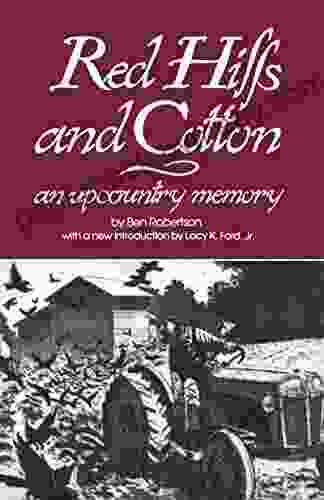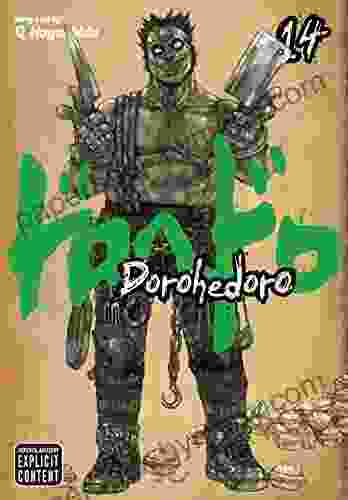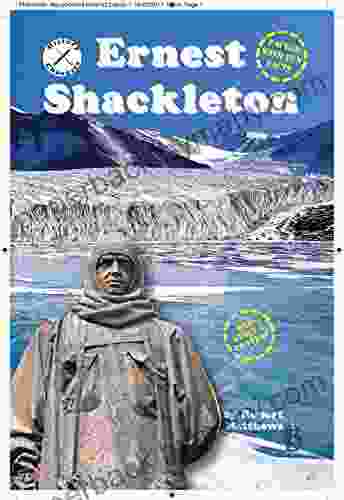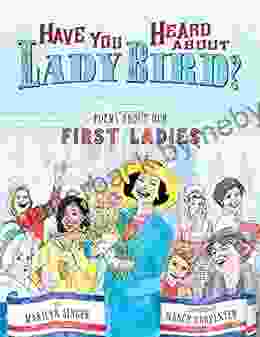Hospitality and the Rhetorics of Software: Understanding the Digital Humanities

The rise of digital technologies has significantly impacted the field of humanities research. Software tools have become indispensable for scholars in a wide range of disciplines, enabling them to collect, analyze, and interpret data in new and innovative ways. However, despite the growing use of software in the humanities, there has been relatively little research on the rhetorical dimensions of these tools.
5 out of 5
| Language | : | English |
| File size | : | 2265 KB |
| Text-to-Speech | : | Enabled |
| Screen Reader | : | Supported |
| Enhanced typesetting | : | Enabled |
| Word Wise | : | Enabled |
| Print length | : | 229 pages |
This book, "Hospitality and the Rhetorics of Software: Understanding the Digital Humanities," aims to address this gap in scholarship. The volume brings together a collection of essays that explore the rhetorical implications of software use in the humanities. The authors in this volume argue that software is not simply a neutral tool, but rather a rhetorical artifact that shapes the way we communicate, interact, and think about the world.
The book is divided into three parts. The first part, "The Rhetorics of Software," examines the ways in which software shapes the communication of knowledge in the humanities. The second part, "Hospitality and the Digital Humanities," explores the ethical and political implications of using software in the humanities. The third part, "Critical Software Studies," provides a critical analysis of the role of software in the humanities.
The essays in this volume draw on a variety of theoretical frameworks, including rhetoric, communication theory, software studies, and critical theory. The authors in this volume offer a diverse range of perspectives on the rhetorical implications of software use in the humanities.
This book is a valuable resource for scholars in the digital humanities, as well as for anyone interested in the rhetorical implications of software use. The essays in this volume provide a rich and nuanced understanding of the ways in which software shapes the communication of knowledge in the humanities.
Part I: The Rhetorics of Software
The first part of the book, "The Rhetorics of Software," examines the ways in which software shapes the communication of knowledge in the humanities. The essays in this section explore the rhetorical strategies that software designers use to persuade users to adopt their products. They also examine the ways in which software can be used to create persuasive arguments and to communicate complex ideas.
The essays in this section provide a valuable overview of the rhetorical dimensions of software use in the humanities. They demonstrate that software is not simply a neutral tool, but rather a rhetorical artifact that can be used to shape the way we think about the world.
Part II: Hospitality and the Digital Humanities
The second part of the book, "Hospitality and the Digital Humanities," explores the ethical and political implications of using software in the humanities. The essays in this section examine the ways in which software can be used to promote hospitality and inclusion, as well as the ways in which it can be used to exclude and marginalize certain groups of people.
The essays in this section provide a nuanced understanding of the ethical and political implications of software use in the humanities. They demonstrate that software is not simply a neutral tool, but rather a technology that can be used to shape the social and political landscape.
Part III: Critical Software Studies
The third part of the book, "Critical Software Studies," provides a critical analysis of the role of software in the humanities. The essays in this section examine the ways in which software can be used to reinforce existing power structures and to silence marginalized voices. They also explore the ways in which software can be used to challenge the dominant narrative and to promote social change.
The essays in this section provide a valuable critique of the role of software in the humanities. They demonstrate that software is not simply a neutral tool, but rather a technology that can be used to shape the way we think about the world and our place in it.
This book, "Hospitality and the Rhetorics of Software: Understanding the Digital Humanities," is a valuable resource for scholars in the digital humanities, as well as for anyone interested in the rhetorical implications of software use. The essays in this volume provide a rich and nuanced understanding of the ways in which software shapes the communication of knowledge in the humanities.
This volume is a significant contribution to the scholarship on the digital humanities. It is a must-read for anyone interested in the rhetorical implications of software use in the humanities.
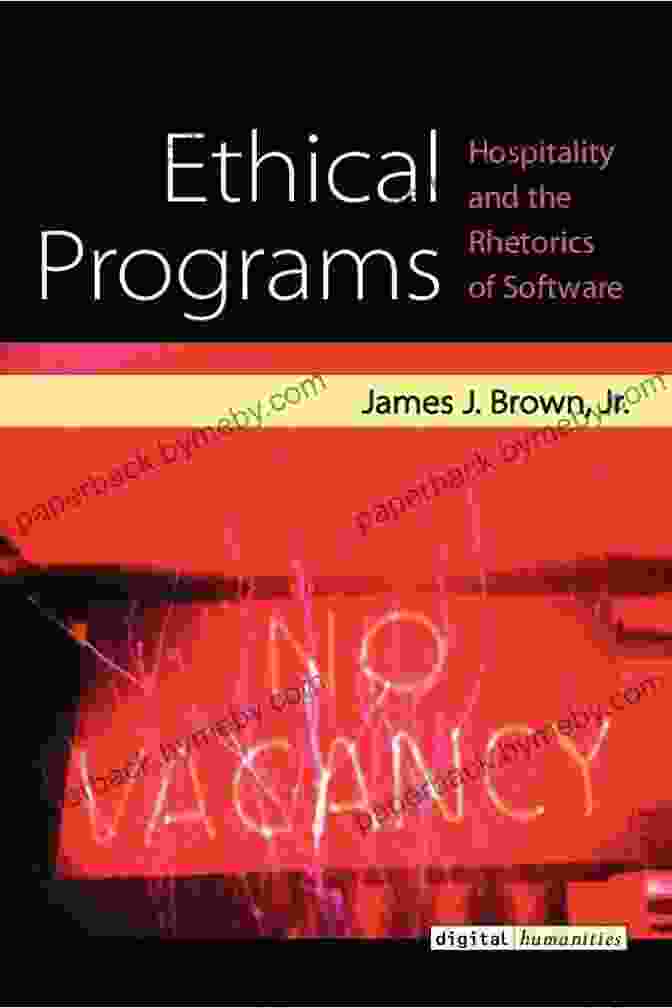
5 out of 5
| Language | : | English |
| File size | : | 2265 KB |
| Text-to-Speech | : | Enabled |
| Screen Reader | : | Supported |
| Enhanced typesetting | : | Enabled |
| Word Wise | : | Enabled |
| Print length | : | 229 pages |
Do you want to contribute by writing guest posts on this blog?
Please contact us and send us a resume of previous articles that you have written.
 Book
Book Novel
Novel Page
Page Chapter
Chapter Text
Text Story
Story Genre
Genre Reader
Reader Library
Library Paperback
Paperback E-book
E-book Magazine
Magazine Newspaper
Newspaper Paragraph
Paragraph Sentence
Sentence Bookmark
Bookmark Shelf
Shelf Glossary
Glossary Bibliography
Bibliography Foreword
Foreword Preface
Preface Synopsis
Synopsis Annotation
Annotation Footnote
Footnote Manuscript
Manuscript Scroll
Scroll Codex
Codex Tome
Tome Bestseller
Bestseller Classics
Classics Library card
Library card Narrative
Narrative Biography
Biography Autobiography
Autobiography Memoir
Memoir Reference
Reference Encyclopedia
Encyclopedia Kenneth T Walsh
Kenneth T Walsh Miranda Carter
Miranda Carter Kim Stanley Robinson
Kim Stanley Robinson Olga Ortiz
Olga Ortiz Mats Alvesson
Mats Alvesson Kevin Hillstrom
Kevin Hillstrom Kimberly Dawn Rempel
Kimberly Dawn Rempel Ralph Moody
Ralph Moody Megan K Stack
Megan K Stack Kimberly Harrington
Kimberly Harrington Melissa Haynes
Melissa Haynes Kim Grant
Kim Grant Kimber Bowers
Kimber Bowers Michael Blank
Michael Blank Prakruti Prativadi
Prakruti Prativadi Kid Kongo
Kid Kongo Nancy Nicholson
Nancy Nicholson Vivienne Edgecombe
Vivienne Edgecombe Robert Zimmerman
Robert Zimmerman Robert O Keohane
Robert O Keohane
Light bulbAdvertise smarter! Our strategic ad space ensures maximum exposure. Reserve your spot today!

 Gabriel HayesUnlock the Culinary Secrets of Puerto Rico: 600 Traditional Recipes for Every...
Gabriel HayesUnlock the Culinary Secrets of Puerto Rico: 600 Traditional Recipes for Every... Pat MitchellFollow ·13.5k
Pat MitchellFollow ·13.5k Dylan HayesFollow ·8.8k
Dylan HayesFollow ·8.8k Stephen KingFollow ·2.1k
Stephen KingFollow ·2.1k Carlos DrummondFollow ·13k
Carlos DrummondFollow ·13k Jack PowellFollow ·16.7k
Jack PowellFollow ·16.7k Wayne CarterFollow ·2.6k
Wayne CarterFollow ·2.6k Jack ButlerFollow ·12.1k
Jack ButlerFollow ·12.1k Lucas ReedFollow ·6.2k
Lucas ReedFollow ·6.2k

 Isaac Asimov
Isaac AsimovEmbark on an Epic Adventure: The Colorado Trail 9th...
Unveiling the Treasures of the Colorado...

 Clinton Reed
Clinton ReedUltimate Football Heroes: Uncover the Gridiron Greatness...
Enter the World...

 Ibrahim Blair
Ibrahim BlairUnveiling the Secrets of Stolen Focus: A Journey to...
In today's relentless digital...

 Colt Simmons
Colt SimmonsRediscover the Founding Father's Vision: Thomas Jefferson...
Immerse Yourself in the Unedited Words of...

 Juan Butler
Juan ButlerExcel in Language Learning: The Ultimate Self-Study...
Unlock Your Language Potential with Our...
5 out of 5
| Language | : | English |
| File size | : | 2265 KB |
| Text-to-Speech | : | Enabled |
| Screen Reader | : | Supported |
| Enhanced typesetting | : | Enabled |
| Word Wise | : | Enabled |
| Print length | : | 229 pages |



